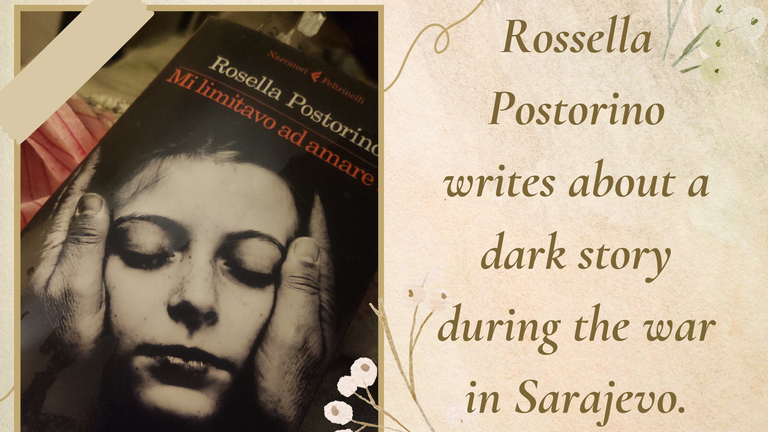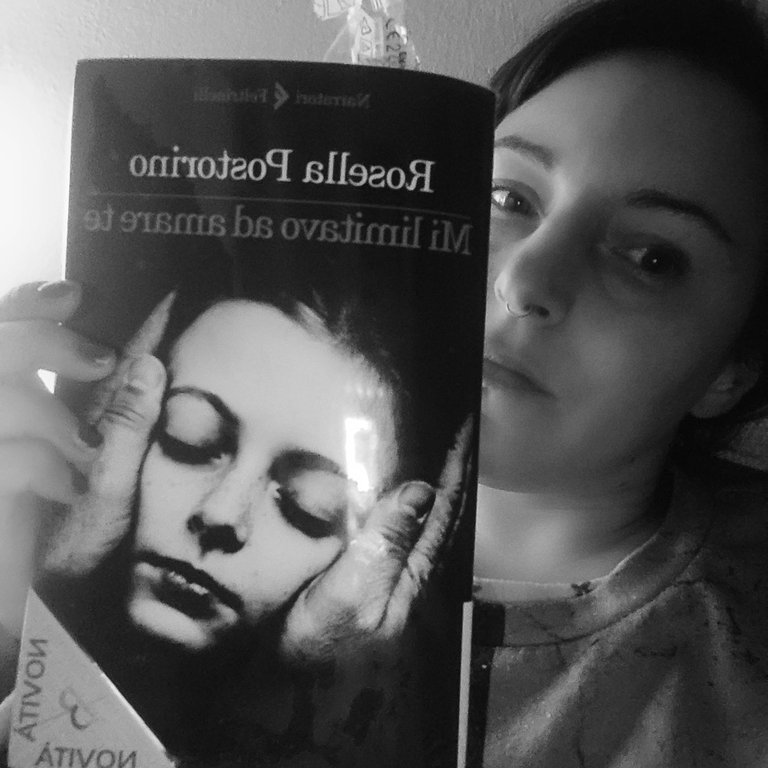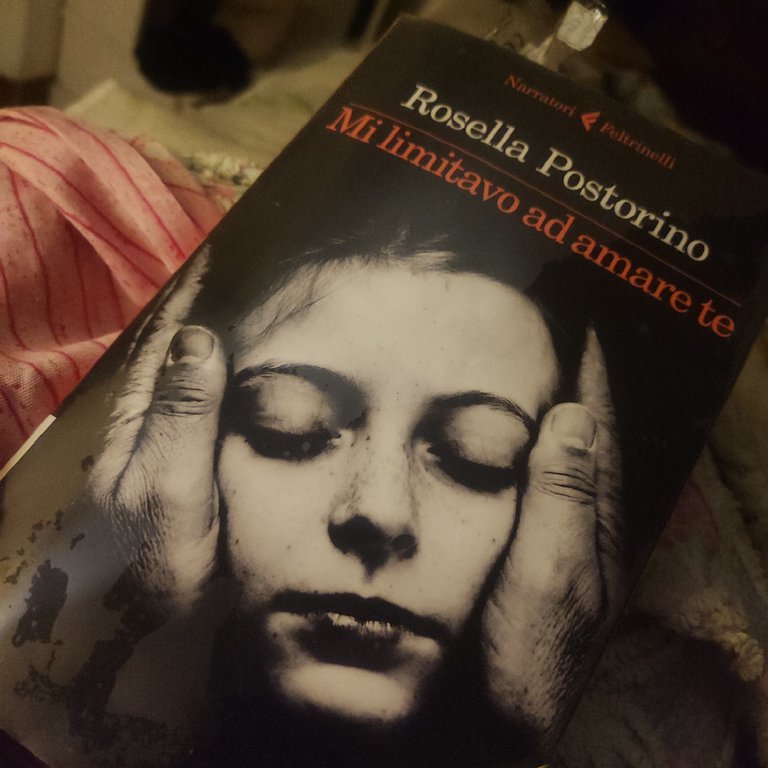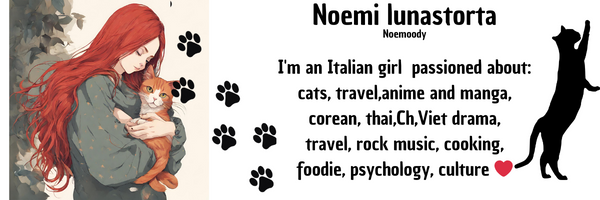Good morning Hivers, how are you? It's rainy here again, yesterday it was also cold and I spent the evening reading a book by a very famous Italian author here who writes books inspired by historical events that are often adapted into theatrical performances. This time she wrote about a topic that for a while touched us all closely, the war in Sarajevo, a dark era for the Balkans while Italy was in the midst of an economic boom and people were finally buying a TV, a mega fridge and going on holiday to the seaside or the mountains.
I remember that when I was little we often talked about children from the Balkans who were sent to Italy for the summer to escape the bombings and it is precisely these children that the book talks about. Or rather, about a real, somewhat dark matter in which some children from an orphanage, some orphaned, some entrusted to the orphanage temporarily by poor parents brought to Italy and then given up for adoption too easily to Italian families. The main characters are two children Omar and Nada, the first waits for his mother to come back to pick him up and he takes strength from his brother even if he suspects that his mother died from a bomb, the little girl instead is more disenchanted and tries to survive the hell with a hostile and aggressive attitude, she has a brother who is enlisted in a war that he does not understand, we are all the same she thinks, we live on the same lands and yet we wage war on each other One day a bus takes them together with other children to Italy, there they meet Danilo who however has a family that escaped with him to Italy and who makes a solemn promise to Nada.
Having arrived in Italy despite the initial difficulties and the teasing of Italian children, the children slowly get used to it, at least Omar, his brother begins to hate him because he feels too Italian and has forgotten his origins in favor of a more comfortable life, of an Italian family that gives him gifts, gives him good food, pays for his sports and fun trips, Nada on the other hand cannot adapt, she remains wild and angry and misses her brother. This story is well told, especially the moment in which the children forget their homeland and the poignant feeling of nostalgia but also of desire for a better life, obviously there is the dark side and that many of these children had a family in Sarajevo, a family that had to fight to get them back, finding themselves faced with some children who did not want to return to the Balkans. The author obviously tells the facts in a fictional way but describes the whole affair very well in a truly moving and well-written book.
Buenos días Hivers ¿cómo estás? Aquí vuelve a hacer un clima lluvioso, de hecho ayer también hacía frío y pasé la tarde leyendo un libro de un autor italiano muy conocido aquí que escribe libros inspirados en acontecimientos históricos en los que a menudo se basan representaciones teatrales. Esta vez escribió sobre un tema que durante un tiempo nos tocó a todos de cerca, la guerra en Sarajevo, una era oscura para los Balcanes mientras Italia estaba en medio de un boom económico y la gente finalmente compraba un televisor, una mega nevera y se iba de vacaciones a la playa o a la montaña. Recuerdo que cuando era pequeña hablábamos a menudo de los niños de los Balcanes que fueron enviados a Italia durante el verano para escapar de los bombardeos y el libro trata precisamente de estos niños. De hecho, se trata de un asunto real un tanto oscuro en el que algunos niños de un orfanato, algunos huérfanos, algunos confiados temporalmente al orfanato por padres indigentes, fueron traídos a Italia y luego entregados en adopción con demasiada facilidad a familias italianas.
Los protagonistas principales son dos niños Omar y Nada, el primero espera que su madre regrese a recogerlo y se obliga a su hermano aunque sospecha que su madre murió por una bomba, la pequeña en cambio está más desencantada y trata de sobrevivir al infierno con una actitud hostil y agresiva, tiene un hermano que se alista en una guerra que no entiende, todos somos iguales piensa, vivimos en las mismas tierras y sin embargo vamos a la guerra entre nosotros. Un día, un autobús los lleva junto con otros niños a Italia, allí conocen a Danilo, quien sin embargo tiene una familia que se escapó con él a Italia y le hace una promesa solemne a Nada.
Habiendo llegado a Italia a pesar de las dificultades iniciales y de las burlas de los niños italianos, los chicos poco a poco se van acostumbrando al menos a Omar, su hermano empieza a odiarlo porque se siente demasiado italiano y ha olvidado sus orígenes en favor de una vida más cómoda, de una familia italiana que le hace regalos, le da buena comida, le paga deportes y viajes divertidos, Nada por el contrario no consigue adaptarse, permanece salvaje y enfadada y echa de menos a su hermano. Esta historia está bien contada, en particular el momento en que los niños olvidan su tierra natal y el sentimiento conmovedor de nostalgia pero también de deseo de una vida mejor, obviamente está la parte oscura y es que muchos de estos niños tenían una familia en Sarajevo, una familia que tuvo que luchar para recuperarlos mientras se encontraban frente a algunos niños que no querían regresar a los Balcanes. El autor obviamente cuenta los hechos de una manera ficticia, pero describe muy bien todo el asunto en un libro verdaderamente conmovedor y bien escrito.
First picture edited by canva, translation with deepl.






 Please vote for the new Ecency Proposal.
Please vote for the new Ecency Proposal.